


|
Imagenex Sonars,
Sonars for Discovery,
Detection, and Determination
Navigation:
Home Products
Customer Support
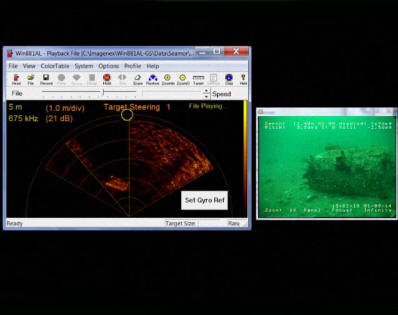
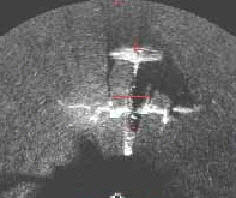
The NEW
965A High Speed High Resolution Imaging Sonar.
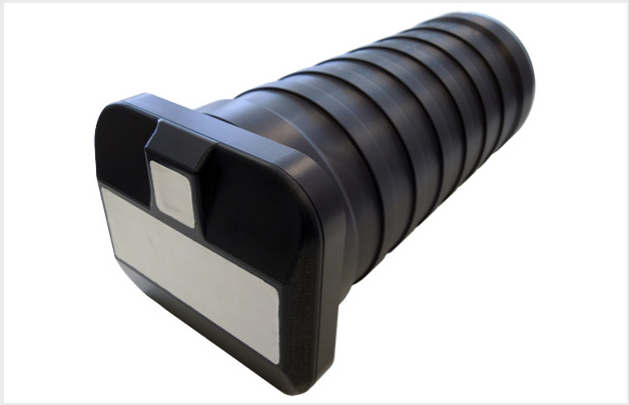
The Imagenex Model 965A is an advanced, high-speed, high-resolution,
multibeam imaging sonar system that has been designed to provide simple,
reliable, and accurate representation of underwater images.
The system consists of an underwater sonar head connected by Ethernet to
a Windows™ based computer.
Introducing the revolutionary new 881L GS and
881A GS Gyro Stabilized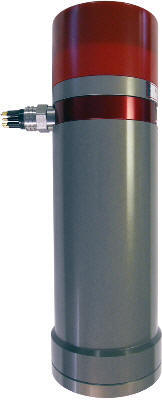 Imaging Sonar:
Imaging Sonar:
Click here for video of
the 881L GS in action
- Advanced Sonar Interpretation with Image Stabilization
Every ROV pilot struggles with vanishing
targets when operating all previous scanning sonars. During the
approach with an ROV or other moving platform, the change in vehicle
heading will move targets out of the viewing sector of the
sonar on successive sweeps. In order to re-locate the object the
operator must increase the sector or stop the ROV and sit on the
bottom to attempt to relocate.
Smaller unwanted changes in rotation of
the sonar platform will either compress or expand the scan of the
target causing distortion and loss of bearing to the object.
By combining a gyroscope and a magnetic
compass with the sonar head, the new 881L-GS sonar is capable of
correcting for orientation changes at a rate in excess of 500
degrees per second. This allows compensation for sudden turns,
bumping, and jarring. Scan lines are displayed without blurring,
compression or smearing effects in all modes of operation.
A North-up mode references the sonar image
to true north when using an appropriate variation input: regardless
of ROV heading changes, the sonar is able to keep the target
continuously at the center of the scanning sector. Positional
changes of aspect relative to the target are easily compensated by
clicking the 'Set Gyro Reference' button on the screen.
For use as a drop sonar suspended from its
umbilical, this system provides a simple solution offering reliable
and stable screen image orientation during most types of operation.
Simultaneous Display and Recording of your
ROV Video on the 881A/L-GS computer.
The benefits of these new features are
vastly reduced sonar image distortion, resulting in significantly
improved object recognition.
Greatly increased operational efficiency in searches due to the
ability to operate with much narrower search sectors with higher
update rates, and without the need to re-acquire a target.
Easy recognition of bottom features within the search area due to
minimal distortion.
The NEW 878 High
Resolution Towable Sonar.

Simultaneous dual frequency, high resolution, LAN compatible with
built in GPS, track plotter, and optional orientation module including
depth,temperature, pitch, roll and heading sensors. Also available
with optional echo sounder.
The Imagenex SportScan:
Affordable dual channel, high-resolution, digital sidescan sonar.
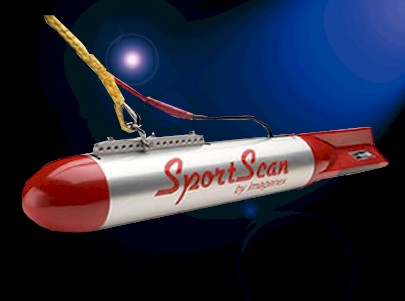
Features of the SportScan:
- 8-bit, digital data over a full-duplex RS-232 link
- 30 m depth rating
- 23 m (75’) tow cable included
- Up to 240 m (800’) total coverage
- GPS interface
- Speed correction
- Dual or Single Frequency models available
The Imagenex Yellowfin:
A full-featured,
triple frequency, high resolution, sidescan sonar.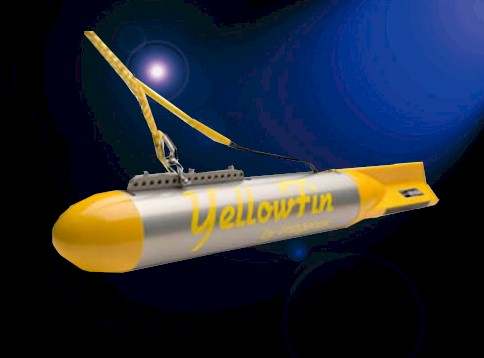
Features of the Yellowfin:
- Triple frequency
- High resolution 1000 data points per side
- 300 m depth rating
- Up to 400 m (1300’) total coverage
- 23 m (75’) tow cable included
- LAN compatible
- Built in track plotter
- Built in internal GPS receiver
Imagenex 881A Digital
Multi-frequency Imaging Sonar
A favorite of ROV operators and manufacturers worldwide
Features of the 881A Imaging Sonar:
-
Programmable
-
Multi-frequency
-
High performance
-
Lower cost
-
Low power
-
Simple set-up and installation
-
Digital telemetry
-
Full scale range from
1 m to 200 m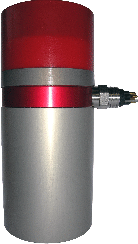
-
Compact size
-
Communication format available to user
Proven Applications:
-
ROV, AUV, & UUV
-
Offshore Oil & Gas
-
Sunken Timber Recovery
-
Diving Support
-
Surveying
-
Search & Recovery
-
Inspection
-
Underwater Archaeology
-
Scientific Research
To Learn More Please contact us:
|
|
